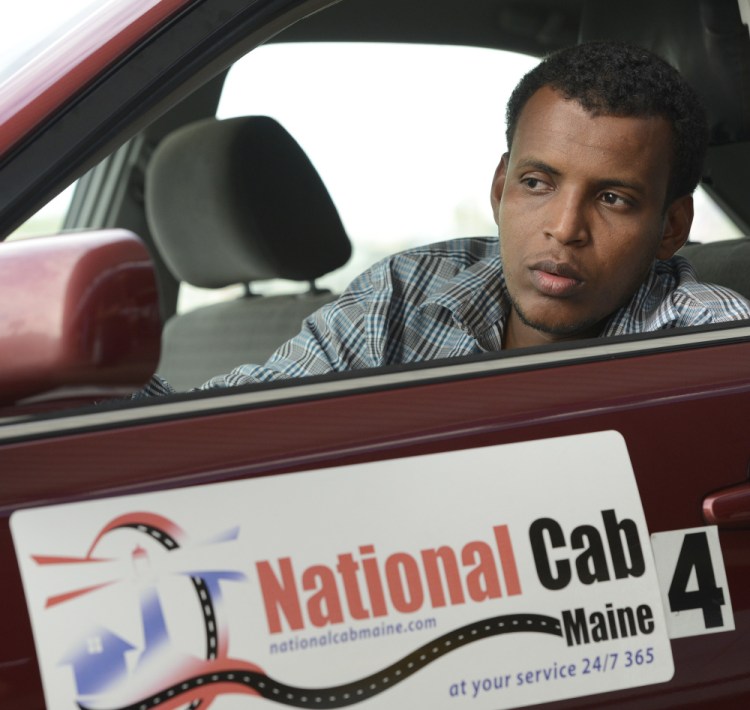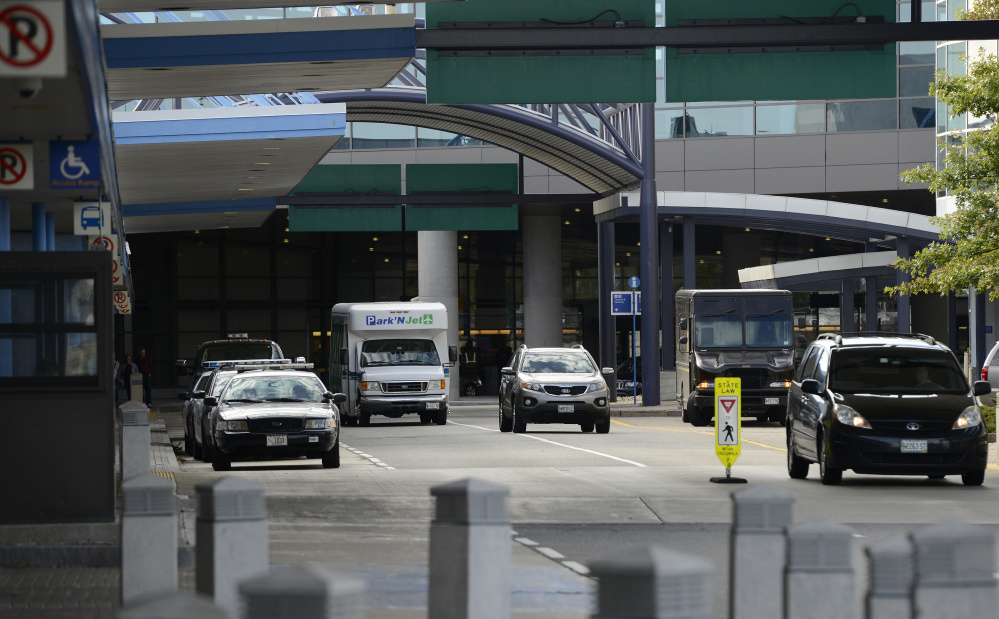A state senator from Portland has submitted legislation to allow municipalities to regulate companies such as Uber after a bill that was written in part by Uber and passed by the Legislature this year made it illegal for cities or towns to do so.
Democratic Sen. Anne Haskell submitted the legislation Friday, the deadline for emergency bills to be taken up during the second legislative session that begins in January, after city officials told her that Uber drivers are beginning to pose a problem at the Portland International Jetport.
“We have no authority to regulate Uber at the jetport,” Portland City Manager Jon Jennings said at a recent meeting with the city’s legislative delegation. “It’s creating an imbalance in terms of competition.”
Unlike traditional taxicabs and liveries, which must pay fees and go through regulatory processes for the privilege of operating at the jetport, Uber drivers enter and exit pickup lanes relatively unencumbered, sometimes leaving their cars at the baggage claim curb, while cabs must wait in designated areas that are monitored by jetport staff, according to the jetport administrator.
Cabs that queue up to wait for passengers from arriving flights pay $810 annually, and their passengers also pay an extra $1.50 for each fare. But Uber drivers and their passengers are not subject to any municipal fees because the state law that went into effect in July strips the city of the power to impose conditions of any kind.
That fact frustrates Ahmed Issack, who was first in line in the queue Friday afternoon. He arrived an hour early to be first in line, all but guaranteeing he would get a fare.
“Competition is not bad. But they should do what I do,” Issack said, referring to the rigorous and expensive permitting process.
Across from the taxi queue in the cellphone lot a few minutes later, a middle-aged man parked his burgundy sedan and immediately pulled out his smartphone. An Uber driver, he would not give his name, but said he comes like the taxi drivers to wait for fares. He said he’s never had a problem picking up fares at the jetport, and that he sympathized with the taxi drivers. Then his phone buzzed – a traveler asking for a ride.
“That’s my cue,” he said, turning to look toward the pickup curb.
Haskell’s bill – “An Act to Allow Municipalities to Regulate Transportation Network Companies” – has not been written yet, and must first be approved as an emergency measure by the Legislative Council. A transportation network company is the generic term used to identify services such as Uber or Lyft, which, using software, create a marketplace for drivers to connect with passengers and arrange for a ride.
Uber declined to comment on the bill.
Haskell’s bill would address a single sentence in the statute that explicitly bars cities from regulating Uber or its drivers.
The rest of the measure contains the types of checks and regulations common to the taxi business, including standards for insurance minimums, required criminal and sex-offender registry background checks, and protection for riders against discrimination and other standards.
The Maine law was passed over a veto by Gov. Paul LePage.
There is no legislative record of testimony opposed to the clause preventing municipal regulation; most of the attention by lobbyists and interest groups was focused on insurance claims and liability.
But City Councilor Edward Suslovic, who chairs Portland’s public safety committee, explained the rationale for the state legislation to correct the law.
“The state doesn’t regulate taxis now, municipalities do,” Suslovic said. “Uber is more in the field of taxis than something else, so in order to have fair and equitable regulation they ought to be done at the same level.”
Jetport director Paul Bradbury said that if Portland were given the authority to regulate Uber at the jetport, a model already exists to coordinate when multiple Uber drivers arrive at the airport and vie for fares.
Uber has the power to give the entire jetport campus a separate designation, preventing drivers from attempting to position their cars closer to the curb in order to be the first to receive a ping for a fare, Bradbury said. The jetport would then offer a fixed number of spaces in which the Uber drivers could wait, so they do not clog the cellphone lot or block circulating traffic at the baggage claim area.
Send questions/comments to the editors.





Comments are no longer available on this story